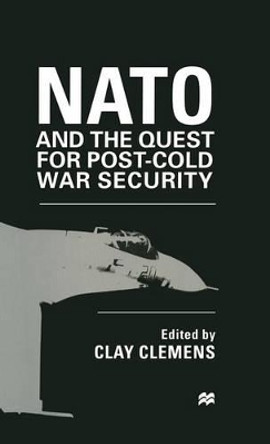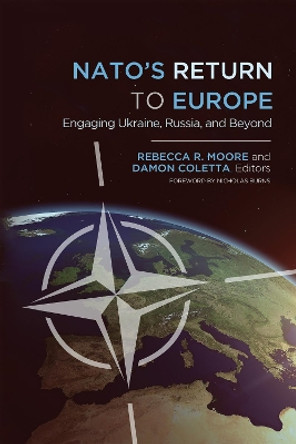Description
"Rebecca Moore captures the drama behind a great historical anomaly, the transformation of an alliance after its principal enemy has disappeared. She details not just the official record of this remarkable transformation but the debates that underpin that official record. The success of this effort to prepare NATO for its new mission is of vital interest to the national security of the United States." -- Hans Binnendijk, Former National Security Council Senior Director for Defense Policy and Arms Control "Rebecca Moores NATO's New Mission is a critical contribution to our understanding of how and why the Atlantic Alliance reinvented itself after the end of the Cold War. Pundits, political scientists and IR theorists often said it could (and should) not be done. This book helps us understand why they were wrong. As NATO seeks to again reinvent itself for a post 911 world, understanding what happened in NATO in the 1990s and why is more important than ever." -- Ron Asmus, Executive Director of the German Marshall Fund's Transatlantic Center in Brussels, former Deputy Assistant Secretary of State for European Affairs
About the Author
Rebecca R. Moore is Associate Professor of Political Science at Concordia College in Moorhead, Minnesota, where she chairs the Global Studies program. She teaches courses in U.S. foreign policy, international relations, and international security and she has published previously on NATO, U.S. human rights policy, and the promotion of civil society in China. She held a NATO-EAPC Fellowship from 2001 to 2003.
Reviews
Moore offers a detailed analysis of the North Atlantic Treaty Organization's continuing relevance in the post-Cold War world. Beginning with the demise of the Soviet Union, Moore details the dramatic transformation of the alliance from one based on collective defense to one whose contemporary mission is to extend stability far beyond its geographical boundaries. The book depicts NATO's relevance to a Europe whole and free and the tools adopted to become an agent of change. Through enlargement, NATO has acted as a tool for democracy promotion. Moore's examination does not dismiss the negative repercussions of US actions after September 11, including the controversy over Afghanistan and intervention in Iraq, but argues that the crisis in the alliance acted as a catalyst for NATO's ongoing attempt to redefine its strategic vision. Moore posits that measuring NATO's relevance solely based on military capabilities discounts the important political role it has played in extending stability beyond Europe. The question regarding how global NATO will become may be answered by whether its identity remains a western alliance or becomes a global alliance of democratic states. Highly recommended. Upper-division undergraduates through faculty. * Choice *
Book Information
ISBN 9780275992965
Author Rebecca R. Moore
Format Hardback
Page Count 224
Imprint Praeger Publishers Inc
Publisher Bloomsbury Publishing Plc
Weight(grams) 510g








